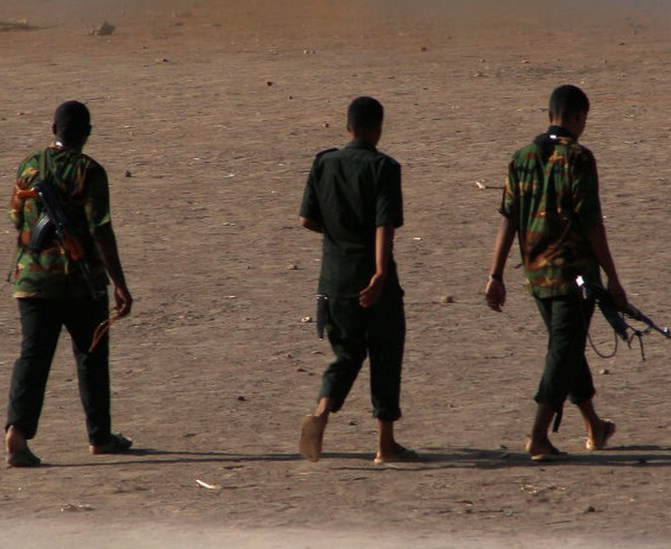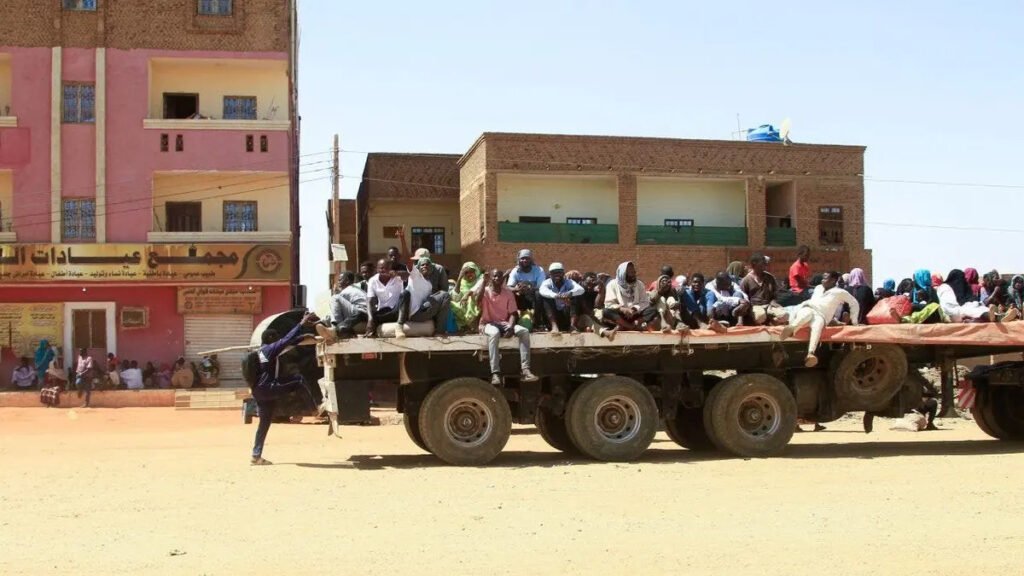In April 2023, Sudan was plunged into one of its most severe political crises in recent history. The country, already reeling from the effects of previous conflicts and a fragile political transition, faced new violence as power struggles between the military factions intensified. What began as political tension between two of the country’s most powerful figures—General Abdel Fattah al-Burhan, the leader of the Sudanese Armed Forces (SAF), and General Mohamed Hamdan Dagalo, also known as Hemedti, the leader of the Rapid Support Forces (RSF)—quickly escalated into armed conflict. This clash between the two military factions has resulted in widespread violence and civilian casualties, with Sudan descending into chaos.
The roots of this conflict can be traced back to the political instability following the 2019 revolution, which ousted long-time dictator Omar al-Bashir. The Sudanese people, after years of struggle and protest, hoped for a transition to civilian rule. However, instead of progress toward democracy, the country witnessed a power-sharing arrangement between the military and civilian forces, a compromise that failed to address the underlying issues. The 2021 military coup led by Burhan, which overthrew the civilian government of Prime Minister Abdalla Hamdok, only further cemented military rule in Sudan. While there were international efforts, led by the United States, the United Kingdom, the United Arab Emirates, and Saudi Arabia, to facilitate a return to civilian governance, these efforts were largely superficial.
The rivalry between Burhan and Hemedti reached its breaking point in early 2023, leading to violent confrontations that left scores dead and many more wounded. What had been a precarious alliance between the two generals turned into open warfare, with both sides seeking to consolidate their power and control over Sudan’s resources. The Sudanese people, who had already suffered under decades of dictatorship, were once again caught in the middle of a violent power struggle, with little regard for their well-being.

The RSF, originally formed from the Janjaweed militias responsible for atrocities during the Darfur conflict, has long been a controversial force in Sudanese politics. Hemedti, who commands the RSF, has positioned himself as a key player in the country’s military landscape, relying on his forces to exert influence and control. The RSF’s role in the suppression of the 2019 protests and its brutal tactics have left a lasting scar on Sudanese society. Burhan, on the other hand, represents the traditional military establishment, but his leadership has also been marred by accusations of corruption and a lack of commitment to democratic reforms.
As of April 2023, the fighting between the SAF and RSF has resulted in significant civilian casualties, with reports indicating that more than 100 people have been killed and many more wounded. Civilians in the capital, Khartoum, and other major cities have found themselves trapped in their homes, unable to access basic necessities such as food, water, and medical supplies. Hospitals are overwhelmed, and the ongoing fighting has made it nearly impossible for humanitarian aid to reach those in need.
The situation has been further complicated by the involvement of external powers, each with its own geopolitical interests in Sudan. Both Burhan and Hemedti have courted foreign support, with Hemedti in particular developing close ties with Saudi Arabia and the United Arab Emirates. The rivalry between the two generals reflects not only internal Sudanese dynamics but also the broader contest for influence in the region, with countries such as Egypt, Russia, and the Gulf states seeking to shape the outcome of the conflict to their advantage.
The international community has called for an immediate ceasefire, with the African Union and the United Nations urging both sides to return to negotiations. However, these calls have so far gone unheeded, as both Burhan and Hemedti continue to vie for control. The prospects for a peaceful resolution remain bleak, as neither side seems willing to back down.
The consequences of this renewed conflict for the Sudanese people are dire. The country, already suffering from economic collapse, widespread poverty, and the effects of climate change, is now facing a full-blown humanitarian crisis. The displacement of civilians, the destruction of infrastructure, and the breakdown of public services threaten to push Sudan further into chaos. For the millions of Sudanese who had hoped for a brighter future following the 2019 revolution, this latest conflict represents yet another setback in their long struggle for democracy and peace.
The Sudanese crisis is emblematic of the broader challenges facing countries in transition from authoritarian rule. Without meaningful reforms and genuine efforts to build inclusive political institutions, the risk of backsliding into violence and authoritarianism remains high. Sudan’s fragile transition to democracy has been repeatedly undermined by military power struggles and external interference, leaving little room for civilian-led governance to take hold.
As the fighting continues, the need for a comprehensive, internationally supported peace process becomes ever more urgent. However, any such process must be grounded in the demands of the Sudanese people, who have repeatedly called for an end to military rule and the establishment of a civilian government that reflects the will of the people. Without addressing the root causes of the conflict—namely, the concentration of power in the hands of the military and the exclusion of civilian voices from the political process—Sudan’s future remains uncertain.
In conclusion, the violent clashes between the SAF and RSF in April 2023 mark a dangerous escalation in Sudan’s ongoing political crisis. The rivalry between Burhan and Hemedti, driven by personal ambitions and external interests, has plunged the country into chaos, with devastating consequences for the Sudanese population. As the international community seeks to mediate the conflict, it is essential that any resolution prioritizes the establishment of a civilian-led government that can address the deep-seated grievances of the Sudanese people and pave the way for a sustainable and peaceful future.


